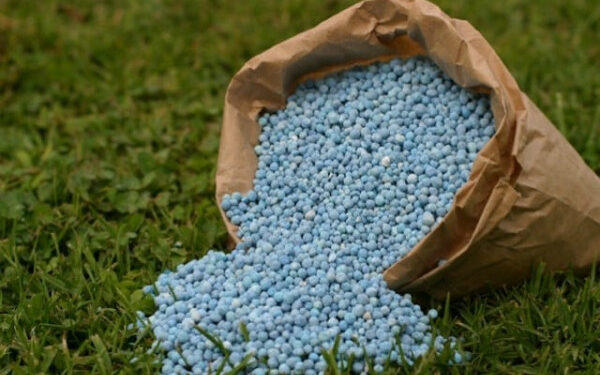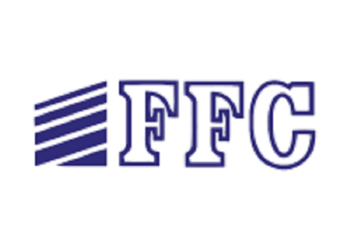Islamabad – In a landmark enforcement action, the Competition Commission of Pakistan (CCP) has imposed heavy fines totaling Rs 375 million on six major fertilizer companies and the Fertilizer Manufacturing Advisory Council (FMPAC) for engaging in cartel-like behavior and fixing fertilizer prices. The move is being seen as a significant step towards safeguarding the rights of Pakistani farmers and restoring competitive practices in one of the country’s most crucial sectors — agriculture.
Overview of the Action: Breaking the Price-Fixing Cartel
According to a statement issued by the CCP, an in-depth investigation revealed that six leading fertilizer manufacturers, in collusion with FMPAC, were actively involved in price coordination and uniform pricing strategies under the guise of an “awareness campaign.” This cartel-like arrangement was found to be anti-competitive and detrimental to the agricultural sector, particularly to millions of small-scale farmers who rely heavily on fertilizers to boost crop yields.
Each of the six fertilizer companies was slapped with a Rs 50 million fine, while the FMPAC received a Rs 75 million penalty, bringing the total to over Rs 375 million.
Fertilizer Price Fixing: How the Cartel Operated
The CCP highlighted a critical observation: while the production costs of the companies varied, the selling price remained uniformly fixed across the board. This defied the logic of a deregulated market and indicated collusive behavior, where companies collectively agreed to fix prices regardless of their individual cost structures.
The commission emphasized that such price uniformity, especially in a decontrolled or deregulated market, can only arise through coordination, not coincidence.
The Role of FMPAC: From Advisory to Business Conductor
The Fertilizer Manufacturing Advisory Council, originally created to advise the government and industry stakeholders, allegedly crossed the line by becoming a coordinator of pricing decisions. The CCP stated that the announcement of prices by the council was not merely informative or advisory, but amounted to a commercial decision, leading to artificial inflation in fertilizer prices.
Impact on Farmers and the Agricultural Sector
Fertilizers such as urea and DAP (Di-Ammonium Phosphate) are essential inputs for crop cultivation in Pakistan. The CCP noted that the artificial inflation in fertilizer prices caused by this nexus had adverse consequences for farmers, many of whom operate on slim profit margins.
Key Consequences Include:
- Increased input costs for farmers
- Lower profit margins, discouraging investment in agriculture
- Reduced access to essential nutrients for crops, affecting yield
- Potential food security risks due to reduced agricultural productivity
CCP’s Justification: Upholding Competitive Practices
The CCP stressed that price fixing and collusion violate Section 4 of the Competition Act, 2010, which prohibits all undertakings from entering into agreements or practices that restrict competition.
In its official statement, the Commission made it clear:
“Trade associations and industry bodies cannot act as platforms for price coordination. Such behavior undermines the foundations of a competitive economy and violates the law.”
The Commission reiterated its commitment to take strict action against anti-competitive practices, encouraging the public and industry stakeholders to report cartels and price manipulation.
Understanding the Competition Act, 2010
To better appreciate the legal implications of CCP’s action, it’s important to understand the framework provided by the Competition Act, 2010, which was enacted to:
- Promote free competition in all commercial and economic activities
- Prohibit abuse of dominant position
- Ban deceptive marketing practices
- Stop cartelization and collusion
The Act empowers the CCP to conduct investigations, issue cease and desist orders, impose penalties, and initiate legal proceedings to restore competitive conditions.
Public and Industry Reactions
The CCP’s bold move has drawn mixed reactions from different sectors.
Farmers’ Associations: Welcoming the Crackdown
Various farmers’ groups and agricultural activists have welcomed the CCP’s decision, calling it a long-overdue intervention to protect farmers from corporate exploitation.
“For too long, fertilizer companies have been setting prices without any regard for farmers’ capacity to afford these inputs. This action by the CCP is a breath of fresh air,” said a representative from the Kisan Ittehad Movement.
Fertilizer Companies: Likely to Appeal
While official responses from the penalized companies have not been released yet, legal experts anticipate that several companies may challenge the fines in court. Industry insiders argue that in a deregulated market, price communication for transparency should not automatically be seen as collusion.
Why Fertilizer Prices Matter in Pakistan
Agriculture forms the backbone of Pakistan’s economy, contributing around 19-20% to the national GDP and employing nearly 38% of the labor force. Fertilizer is a critical agricultural input, directly impacting:
- Crop yield and quality
- Food prices and inflation
- Farmer livelihood and sustainability
Any distortion in fertilizer prices — whether through shortages, hoarding, or price manipulation — can have ripple effects across the entire economy.
Past Precedents: CCP’s Record on Market Interventions
This is not the first time the Competition Commission of Pakistan has taken bold steps against market manipulation. Over the years, the CCP has penalized:
- Cement manufacturers for price collusion
- Sugar mills for hoarding and manipulation
- Auto companies for deceptive marketing and anti-competitive practices
These actions reflect a growing commitment by regulatory bodies in Pakistan to level the playing field, especially in sectors critical to national development.
Future Outlook: Toward Greater Market Transparency
The CCP’s message is clear: cartelization and collusion will not be tolerated. With the fertilizer sector under increased scrutiny, experts believe that:
- Greater transparency in pricing mechanisms will follow
- Independent audits of cost structures may be mandated
- Farmers may benefit from more competitive pricing and accessibility
The Commission also hinted at strengthening its cartel detection tools, including market intelligence gathering and whistleblower protections, to prevent future anti-competitive practices.
Conclusion: A Crucial Step Toward Market Justice
The imposition of Rs 375 million in fines on top fertilizer companies and the FMPAC signals a strong commitment by Pakistan’s regulatory authorities to ensure fair competition, especially in sectors that impact millions of livelihoods. As the CCP continues to monitor and investigate other sectors, this action serves as a warning to businesses that price fixing, even under the guise of industry cooperation, will face legal consequences.
Farmers, consumers, and the broader economy stand to benefit from these measures, as restoring competition in essential markets like fertilizers is key to economic stability, food security, and agricultural prosperity.

























